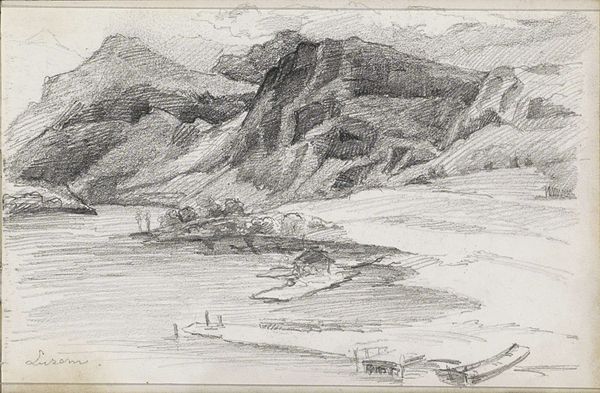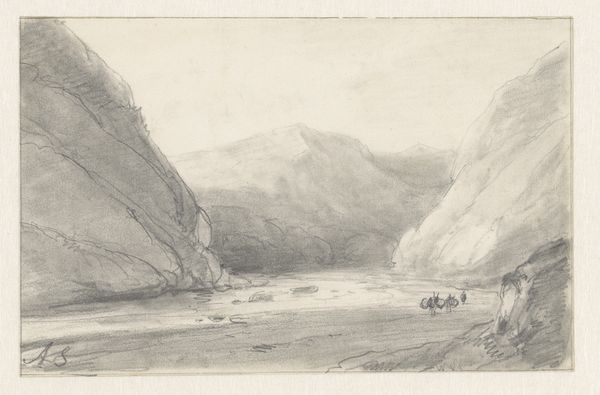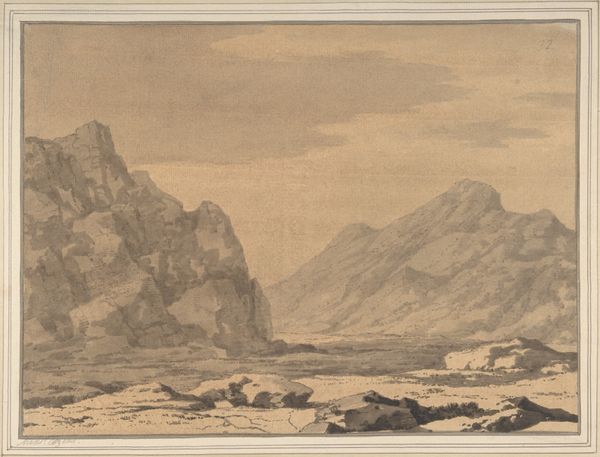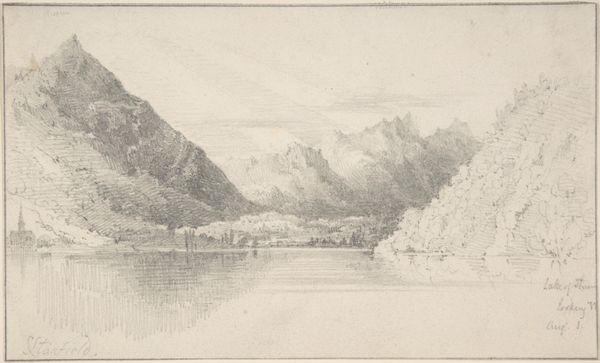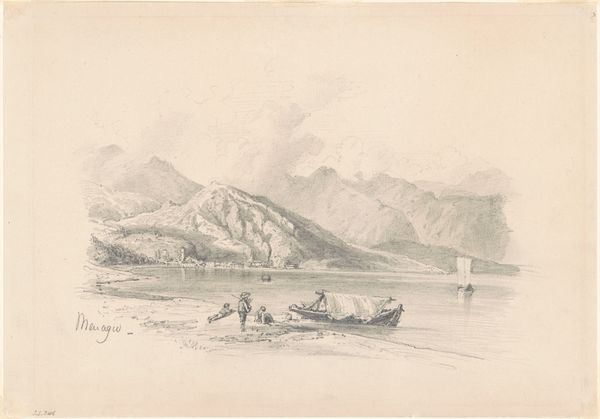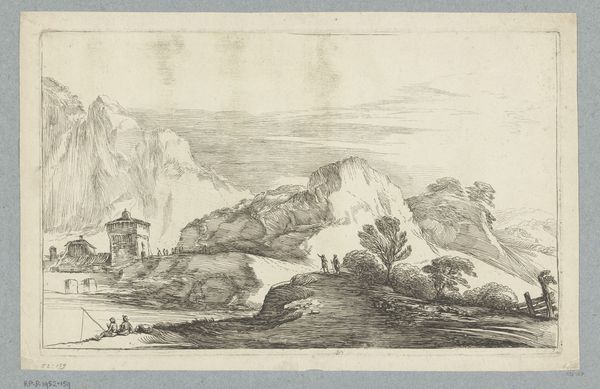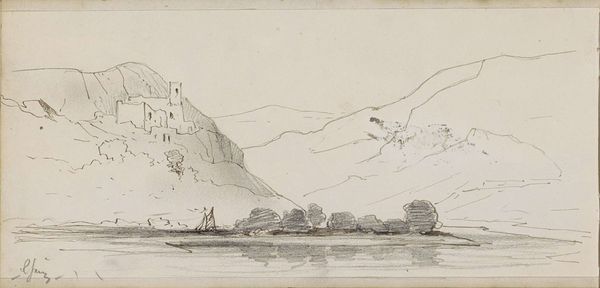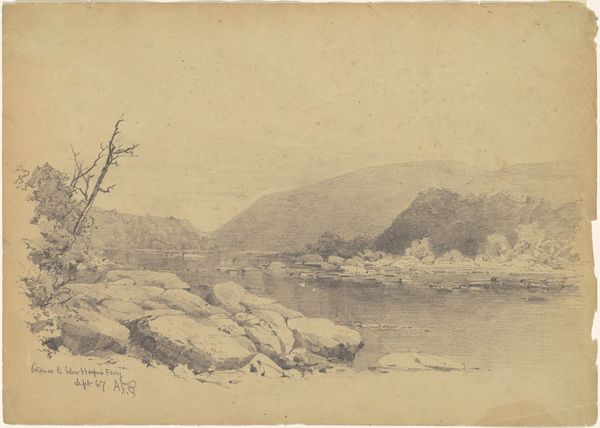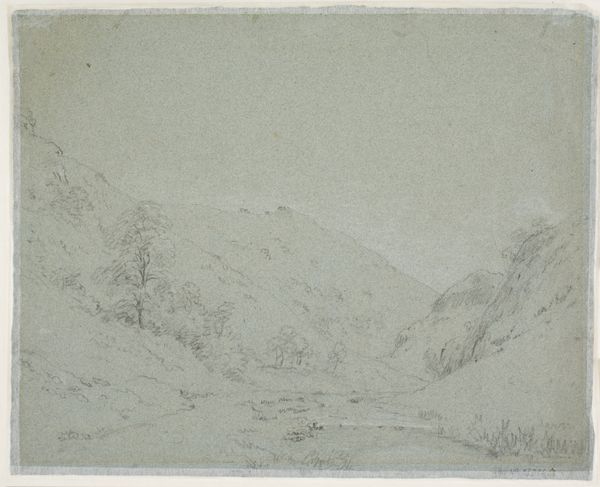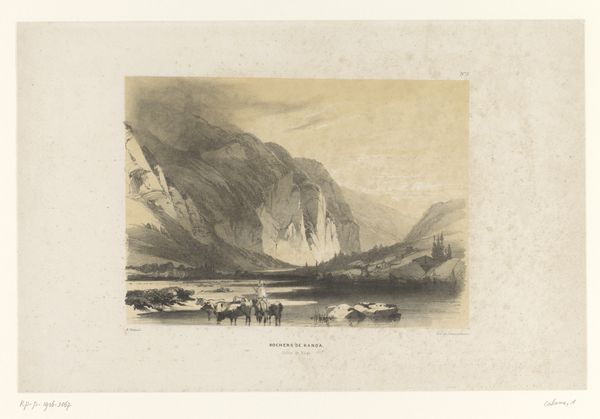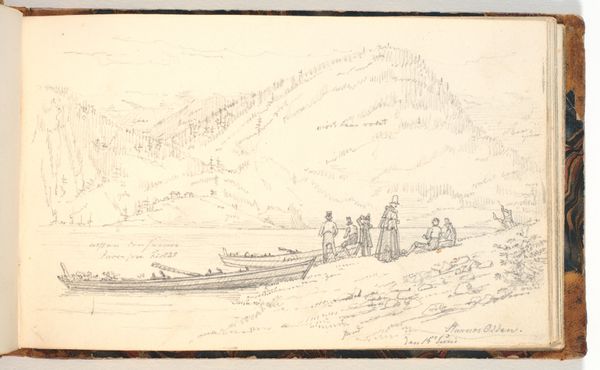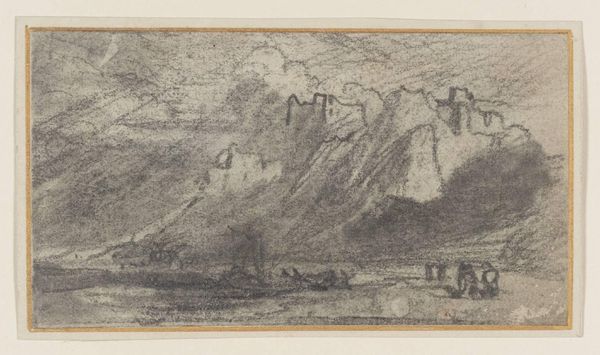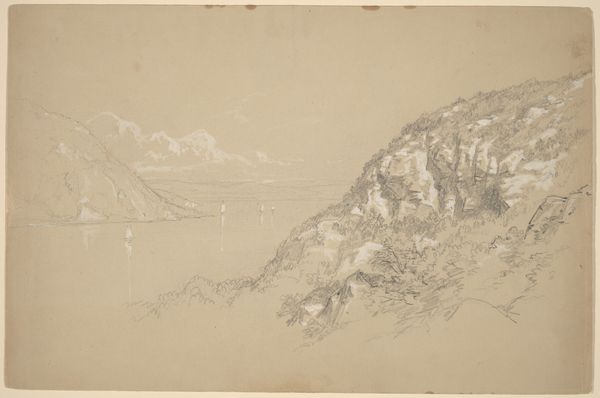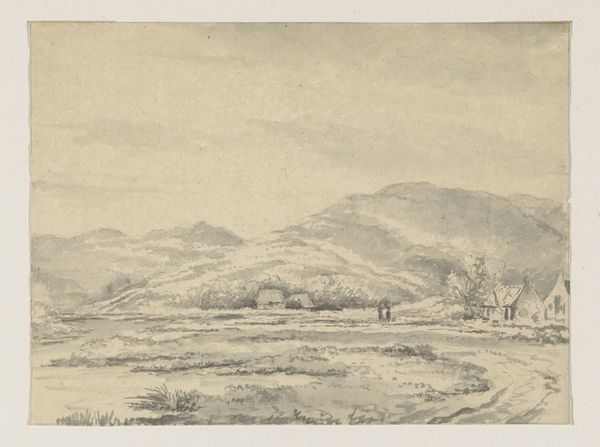
drawing, print, paper, dry-media, pencil, graphite
#
drawing
# print
#
landscape
#
paper
#
dry-media
#
coloured pencil
#
pencil
#
graphite
#
realism
Dimensions: 167 × 240 mm
Copyright: Public Domain
Editor: We're looking at "Coast of Argyllshire," a drawing and print by William Daniell from about the 19th century, rendered in graphite, pencil, and colored pencil on paper. The scene is dominated by water, and I get this really quiet, almost lonely feeling from it. What stands out to you? Curator: What I notice is how Daniell, probably unconsciously, frames a vision of Scottish Highland life at a moment of intense social and economic upheaval. The Highland Clearances, the forced displacement of people from their ancestral lands, were still a relatively recent memory when Daniell created this work. Does this idyllic scene unintentionally mask deeper wounds? Editor: Highland Clearances? I don't see anything about that here. It looks quite picturesque, the boats sailing, people relaxing. Curator: Precisely. The picturesque aesthetic itself becomes a kind of ideological tool. It obscures the harsh realities. Notice how the people are depicted as tiny figures within the vast landscape? It emphasizes a certain romantic vision of rural life, perhaps even erasing the individual experiences of displacement and loss experienced by many Highlanders. Where’s the hardship? Editor: So, you're saying it's not just a landscape, it's making a statement, intentionally or not, about the power dynamics of that time? The vast landscape minimizes human suffering? Curator: Exactly. How else could we interpret these seemingly calm, quaint, vignettes if we understand how they relate to colonial exploitation, power and inequality? Who gets to own this beautiful scenery? Editor: It really changes how I see the drawing, looking at it as more than just pretty scenery. I see it’s much more complex. Curator: That’s what is so exciting about art history – to consider who benefits, who loses and why images are created, especially in light of issues of gender, race and identity. Editor: Thank you for pointing this out.
Comments
No comments
Be the first to comment and join the conversation on the ultimate creative platform.
